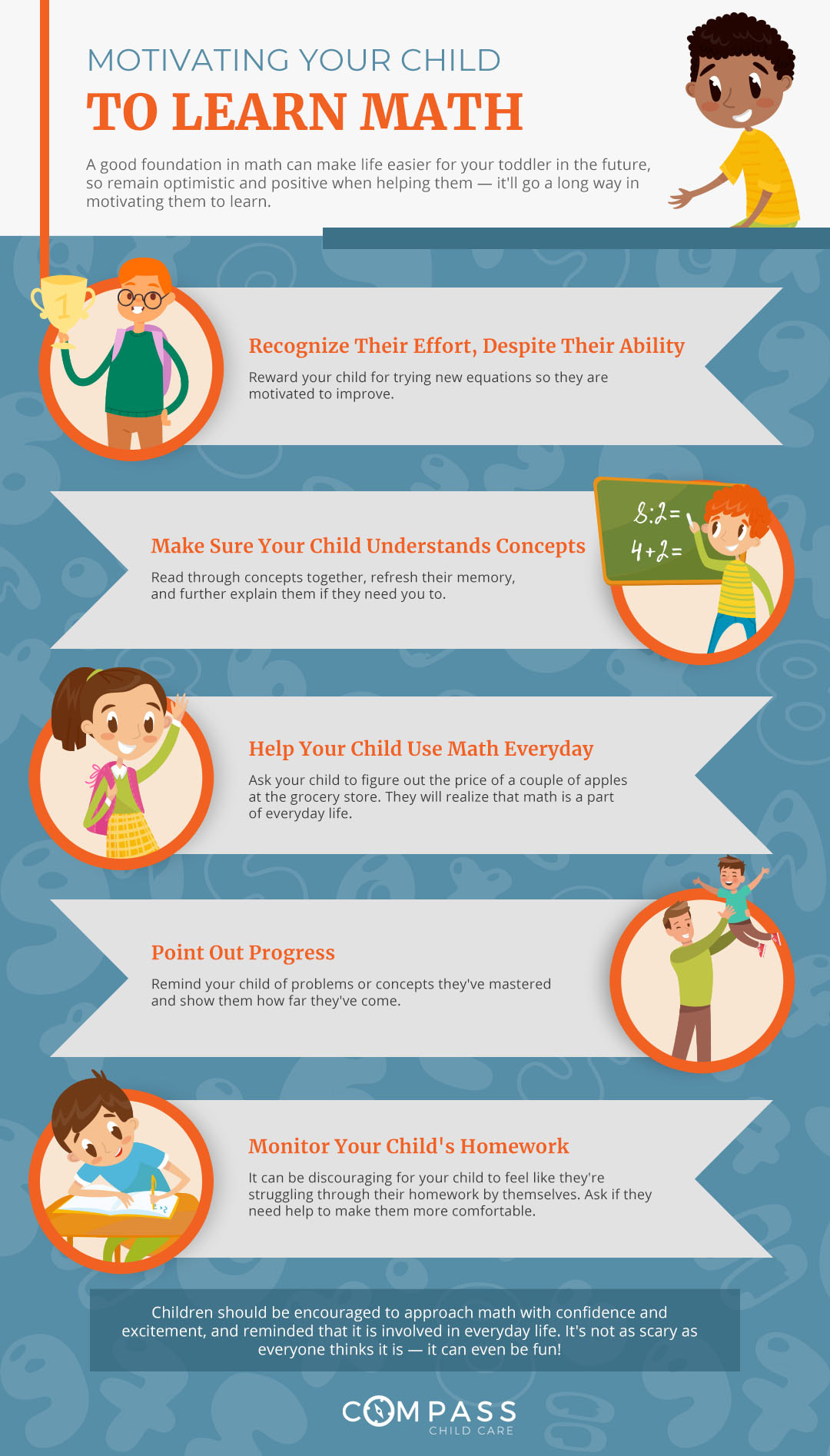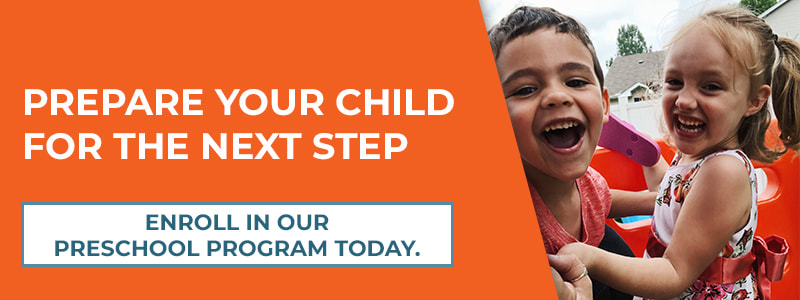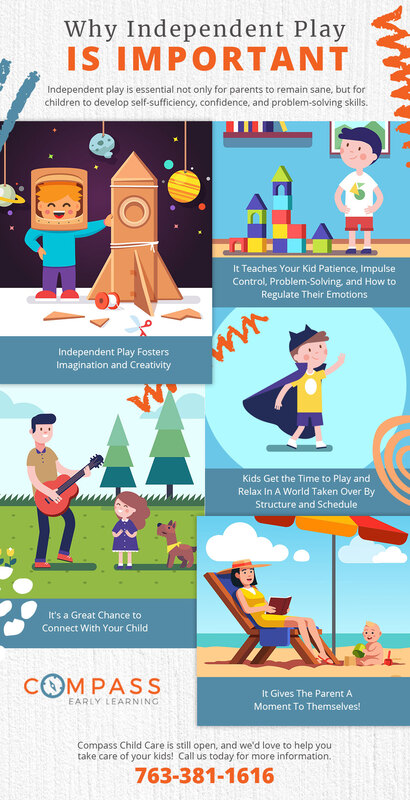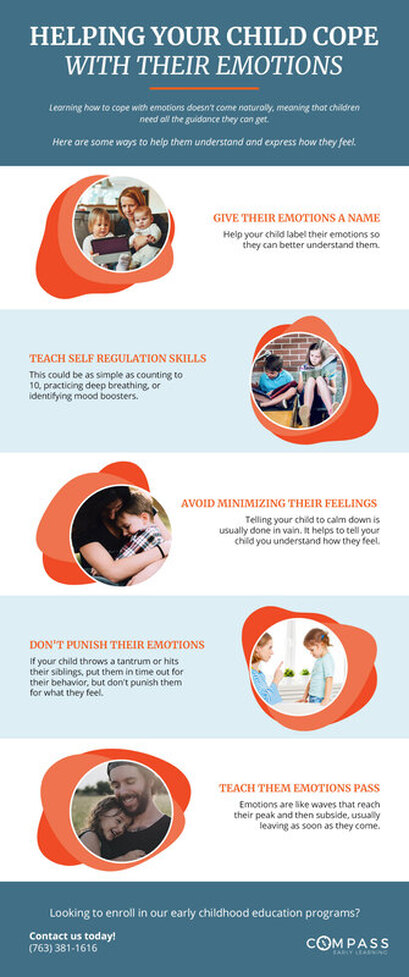|
Math is so important in life. If your child can understand math and enjoys math, there are so many career opportunities open to them because of it, from engineering to computer science. Math is a foundation in many jobs and careers, so even the most basic understanding of math is essential for life. Compass Child Care understands the importance of building a solid foundation in math. We incorporate math at all levels of our infant, toddler, and preschool programs, including using STEM education, which stands for Science, Technology, Engineering, and Math. Below, we’ll offer up tips on how you can encourage your child to learn math. Contact us today to learn more! TIPS TO ENCOURAGE YOUR CHILD TO LEARN MATH Incorporate Math Activities Into Your Daily Living Math is such a part of our daily lives that many of us probably don’t even realize we are using math. For example, you use math when you calculate your checkbook, go to the grocery store, look at the time, bake cookies, and so much more. When you are encouraging your child to learn math, you can help them by using math on a daily basis as it comes up naturally. For example, ask your child to bake with you and have them measure out the ingredients. Have them count how many cows you pass as you are driving into town, or if you live in the city, how many trees they see. You can begin a building project where they will need to count, add, and even multiply building materials. There are so many different ways we use math on a daily basis that just doing these on a daily basis with your child can encourage them in math. Play Math Games There are an abundance of fun math games that you can play with your child that they won’t even know that they are learning math. From chess and dominoes to Monopoly and Yahtzee, math is used in these games in a fun, engaging way. You can even utilize alloted screen time for math games on the computer. If your child is going to play on the computer, you might as well have it be educational. Math games on the computer are interactive and exciting, and some are progressive, meaning they will challenge your child in math as they become more accomplished. By encouraging math games, you are encouraging the learning and processing of math. Read Math Books Compass Child Care is, of course, not talking about actual math textbooks here. We’re referring to story books that incorporate math in a way that kids can learn about math. There are many counting books, as well as story books that teach kids math in a fun, dynamic way. Examples include Sir Cumference and the First Round Table, The Boy Who Loved Math, and How Much is a Million? Play Store It’s possible you may even have memories of playing store as a child. Giving kids an early idea of how math and elementary economics work will only serve them in the long run (plus, as a parent, this lesson could be life-saving for when you take your child with you to the grocery store and all they do is ask for items!). Playing store will teach your child how to count, how to add and subtract, how money works, and simple problem solving skills. Depending on the age of the child, you can throw in other lessons as well, such as what happens when you run out of money, how debt works, and the like. Kids can spend hours playing store, and it’s a great opportunity to add in socialization skills as kids can easily play this with their friends. Observe The World Around You Another great way to incorporate math into your child’s learning is by looking for shapes, which is the foundation of geometry in the upper levels of math. Everywhere you go, including in your home, there are shapes. You can keep it simple, from round balls or go more complex, such as the octagon shape of a stop sign. When you buy your child ice cream, talk about the cone it comes in and notice the shape of buildings as you walk by. When you cut something up for them to eat, such as a pizza, what shapes are you making?  WHY CHOOSE COMPASS CHILD CARE FOR YOUR CHILD’S INFANT THROUGH PRESCHOOL NEEDS Many people think math is hard, but it’s not; it’s everywhere in our society. The problem lies in the fact that when people think of math, they think of it in terms of upper levels of math such as Calculus. However, for your child, teaching the basics in a fun, engaging way can be life-changing. Who knows? Your child may grow up to be an engineer, an astronaut, or a computer programmer — all because of your encouragement of math. Compass Child Care is a top-notch early childhood education school that offers programs from infants through preschool. We have many locations throughout Minnesota to better serve you, including Coon Rapids, Blaine, Isanti, and soon-to-open East Bethel. Our early childhood education programs are tailored for each age group, with an emphasis on helping your child to not only grow, but also for them to discover themselves. From art and music to STEM activities and outside play, we believe in helping foster your child’s growth in all areas, including mentally and physically. Connect with us today to get started! Raising a child is a truly beautiful experience, but a singular one to each and every parent. There are great moments but there are also frustrating ones — when you leave the room, your toddler may cry out for attention, or pull the book you’re reading from your hands so you can play with them. While this behavior can illicit irritating responses from parents, it could be because your child hasn’t learned independent play yet and hasn’t learned how to rely more on their own direction. We often oversee our children’s playtime, so it would make sense that they rely on us for some inspiration. Teaching toddlers to entertain themselves isn’t just about trying to maintain your sanity as a parent, it is essential for them as well. Independent play helps your child develop and foster creativity, critical thinking skills, and confidence. Letting your toddler take charge of their own amusement gives them a much-needed opportunity to explore on their own, and it gives you some much needed time to do your own things as well. Keep reading to find out why encouraging your child to participate in independent play has advantages for you and them! For more information about our early childhood education center in Coon Rapids, Each Bethel, Isanti, and Blaine, contact Compass Child Care today. First, Let’s Define It Independent playtime is a daily schedule where your child plays without parents or siblings around to tell them what to do or how to do it. This doesn’t mean you shouldn’t provide the right space and the right toys, rather, it means that monitoring their play and controlling their actions isn’t allowing the unstructured playtime they need. Furthermore, this also doesn’t mean that you need to leave the room, as your child may not immerse themselves in their play unless they feel secure that their caregiver is within earshot or sight. The idea isn’t that your children should be alone, it’s that their playing should. Their play can be in a safe space where the child doesn’t feel isolated or banished. You can choose the time of the day that works best for you and your child, and play can happen in a room in your house or in your backyard. If it is in a room, be sure that all dressers are bolted to the wall and electrical cords are out of reach. The last thing you want is your child getting hurt during their unstructured playtime! Try To Resist Overpowering Their Play When you do want to play with your child, remember that you are the assistant and your child is the director. Do not send them the message that your ideas are better, that you can teach them, or that you can make it more fun. Try to resist the urge to lead and instead follow them passively without being disconnected or detached. Allowing them to take the lead helps them understand that they are not reliant on your instruction, rather, they are relying on their own. More importantly, they are learning that their ideas are valuable and worth pursuing, and they don’t always need an adult to give them direction.  Make Room For A Mess Children play and usually end up making a mess with what they are playing with. Messy or tactile play with materials like sand, clay, paint, and water is something that many parents avoid because it is inconvenient and hard to clean up. For kids, however, it is soothing to play with these things, not to mention it keeps them preoccupied for a long time. One way to contain the mess is to designate a room or some kind of space for it. The outdoors is nice because it means less of a liability indoors, but this mess can be safely contained indoors with large trays, buckets, and towels. It could take the form of letting your child play in the bathtub with shaving cream while you get some work done on your laptop sitting next to the tub. Get The Right Toys Out A little earlier we stated that letting your child choose their toys is a great part of independent playtime. This is still true, and it is good to have a variety of toys, ranging from difficult to easy, that will keep your child preoccupied for a long time. If the toys are too easy, they will lose focus and get bored. If the toy is too difficult, your child may get frustrated and give up. The same thing could be said about the number of toys you are providing your child with — if there are too many then your child could get overwhelmed. What you can do is stash some toys in a toybox before bringing them back out. After being absent for a period of time, the toys will appear more novel to the child and make them naturally more interesting. Toys should have the right level of difficulty so they are still challenging but interesting. Open-ended toys like building blocks or toys with movement like a car tracker can be great for children of nearly all ages. These objects can have multiple uses and are great for encouraging solo play because the endless possibility keeps kids entertained for longer. Lastly, Why It’s Important Independent play requires a level of self-reliance as well as the ability to focus and develop problem-solving skills. If there is no one else to reach for the toy or re-build a fallen block tower, then the child needs to figure it out themselves and continue building their creations successfully. This helps them manage their emotions and perseverance. When a child plays by themselves, they develop executive function, or the ability to self-regulate their emotions, develop patience, and control their impulses. These are critical to the child’s overall health, development, and future success. Children are over-scheduled — sometimes they need time to themselves to play and explore on their own. A great time to schedule independent play is while you cook dinner or before their bedtime, setting aside time solely for independent play to emphasize its importance. Giving your child the time to play on their own is important for raising confident, self-sufficient kids who don’t always need external validation or input to be happy or content. It is never too late to start, and is always a great thing for your kid to practice. Compass Child Care provides early childhood education programs that are geared towards helping your kid expand their creativity, confidence, and problem-solving skills. Take a look at our preschool programs at our locations in Coon Rapids, Each Bethel, Isanti, and Blaine, and to enroll in our early childhood education programs, contact us today. Growing up, we teach children exactly how to cope with their physical pain. Put a bandaid on a scraped knee and soothe them until the crying stops. Tell them that the pain will only be temporary and they will heal in a certain amount of time. Dealing with emotional pain, or emotions, in general, is less talked about and can be much harder to navigate, especially when children aren’t equipped with the knowledge they need to cope with what they are feeling. Keep reading to find out more about how to help your child cope with their emotions and communicate them effectively. To learn more about our early childhood education opportunities, please don’t hesitate to contact us today. Don’t Confuse Emotions With Weakness Some parents can be embarrassed by emotional kids, especially in public places. This is understandable since no one wants to draw attention to their kids or have anyone feel like they don’t have their kids under control. It is crucial to remember however, that it is more than OK for kids to feel emotions, even intense ones. Being emotional doesn’t mean your kid is weak — try to avoid thinking that your child’s emotions have to be fixed. Teach Your Child About Emotions It is important to teach your child to recognize and understand their emotions, which can be done by helping your child name their emotions. This can be done by simply saying “You look sad right now,” or “I can tell you’re mad that we can’t go visit grandma.” Once your child is able to more accurately label how they feel, it can be very helpful to guide them in how to appropriately express their emotions. Hitting you or their sibling isn’t O.K., and neither is screaming in the middle of the grocery store. Acknowledge their feelings, but let them know that they have better choices in expressing how they feel. Use Logic To Explain How They Feel
Telling your child to calm down or to stop crying isn’t conducive or effective in helping them understand what they feel, nonetheless help them get a hold on their emotions. Demanding your kid be rational when they are expressing themselves irrationally is an effort made in vain. Instead, wait for them to calm down before asking them why they got upset, and investigating what might have triggered them to react the way they did. Validate Your Child’s Feelings, But Let Them Know That Feelings Go Through Us Even as an adult, people need their feelings validated. Sometimes, parents can unintentionally minimize their children’s feelings. No matter how they feel, help them put a name to their feelings before showing that you understand how they feel. It can be as simple as saying “I know you’re upset that we aren’t able to go to the park today; I also get upset when I can’t do the things I want to do.” It is always important to emphasize that emotions are fleeting, and pass through us like waves. While we can’t really choose how we feel, we can decide how to react to those feelings. Emotions won’t last forever, let alone for a few minutes. If you’re looking for an early childhood education center, Compass Child Care has locations in Coon Rapids, Blaine, East Bethel, or Isanti. Contact us today to learn how to enroll. |
AuthorWrite something about yourself. No need to be fancy, just an overview. ArchivesCategories
All
|






 RSS Feed
RSS Feed
